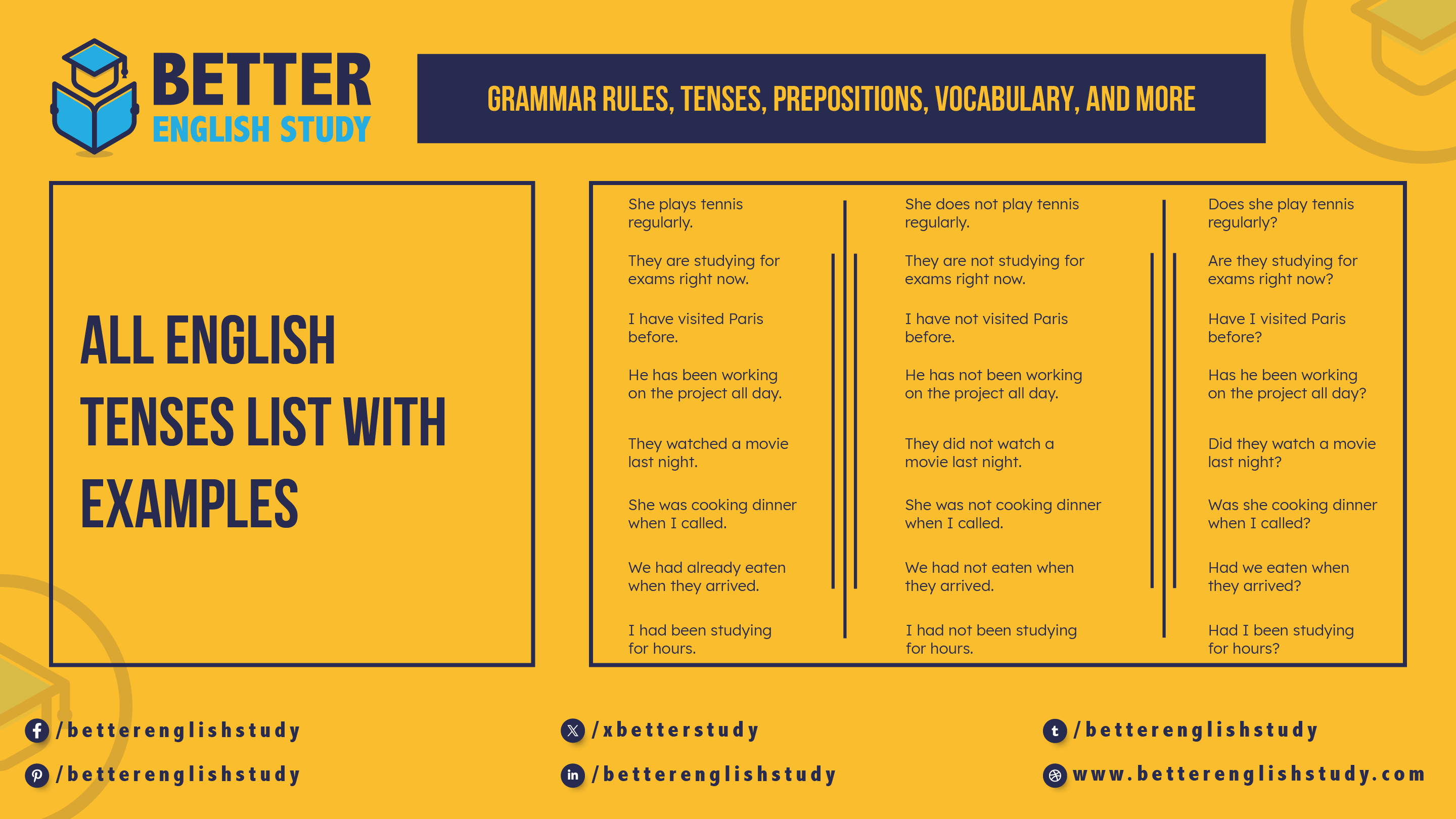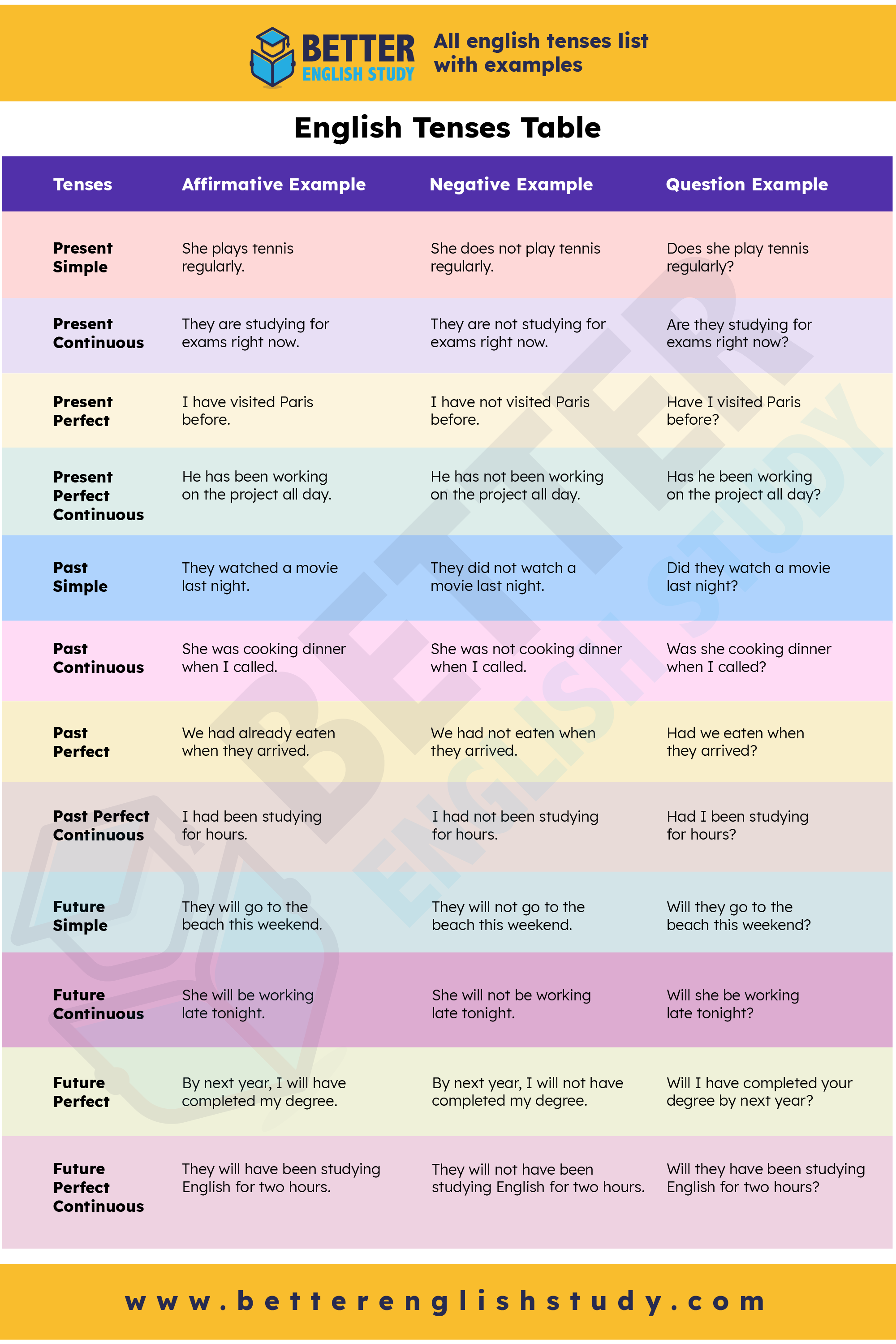
Understanding English tenses is crucial for effective communication. Tenses help convey the timing of an action, allowing us to express events in the past, present, and future.
In this comprehensive guide, we will explore all the English tenses, providing examples in affirmative, negative, and question forms to enhance your grasp of these grammatical structures.
All English Tenses List Table– Including Examples
| Tenses | Affirmative Example | Negative Example | Question Example |
| Present Simple | She plays tennis regularly. | She does not play tennis regularly. | Does she play tennis regularly? |
| Present Continuous | They are studying for exams right now. | They are not studying for exams right now. | Are they studying for exams right now? |
| Present Perfect | I have visited Paris before. | I have not visited Paris before. | Have I visited Paris before? |
| Present Perfect Continuous | He has been working on the project all day. | He has not been working on the project all day. | Has he been working on the project all day? |
| Past Simple | They watched a movie last night. | They did not watch a movie last night. | Did they watch a movie last night? |
| Past Continuous | She was cooking dinner when I called. | She was not cooking dinner when I called. | Was she cooking dinner when I called? |
| Past Perfect | We had already eaten when they arrived. | We had not eaten when they arrived. | Had we eaten when they arrived? |
| Past Perfect Continuous | I had been studying for hours. | I had not been studying for hours. | Had I been studying for hours? |
| Future Simple | They will go to the beach this weekend. | They will not go to the beach this weekend. | Will they go to the beach this weekend? |
| Future Continuous | She will be working late tonight. | She will not be working late tonight. | Will she be working late tonight? |
| Future Perfect | By next year, I will have completed my degree. | By next year, I will not have completed my degree. | Will I have completed your degree by next year? |
| Future Perfect Continuous | They will have been studying English for two hours. | They will not have been studying English for two hours. | Will they have been studying English for two hours? |

Mastering English tenses is fundamental for clear and accurate communication. By familiarizing yourself with the various tenses and their forms, you gain the ability to express actions with precision, whether they occurred in the past, are happening in the present, or will take place in the future.
Regular practice with examples in affirmative, negative, and question forms will enhance your proficiency in using English tenses confidently.
